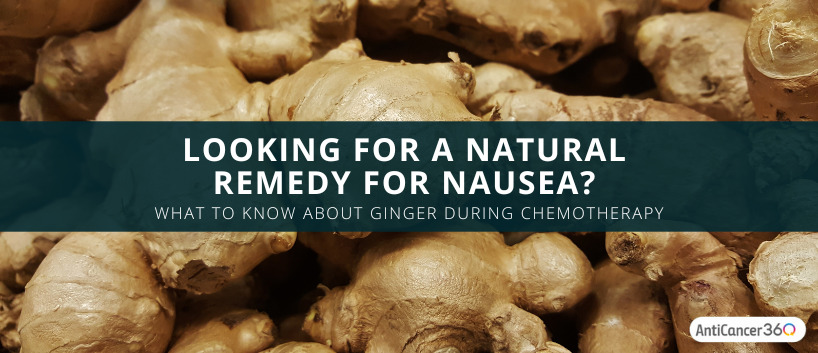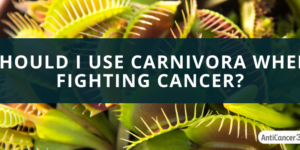Nausea is a common side effect of chemotherapy. Nausea from chemotherapy is more than unpleasant —it may also lead to severe vomiting and subsequent dehydration.
A bad episode of chemotherapy-induced nausea and vomiting (CINV) can be traumatic, leading to anticipatory nausea and vomiting, which occurs when you feel sick even before the next chemo treatment begins. Radiation can also cause nausea and vomiting as a side effect.
Healthcare providers often prescribe medication to prevent or treat nausea and vomiting from cancer treatments. Common examples include dexamethasone, metoclopramide, and antiemetic drugs like ondansetron (Zofran). Cannabis is another popular option [1].
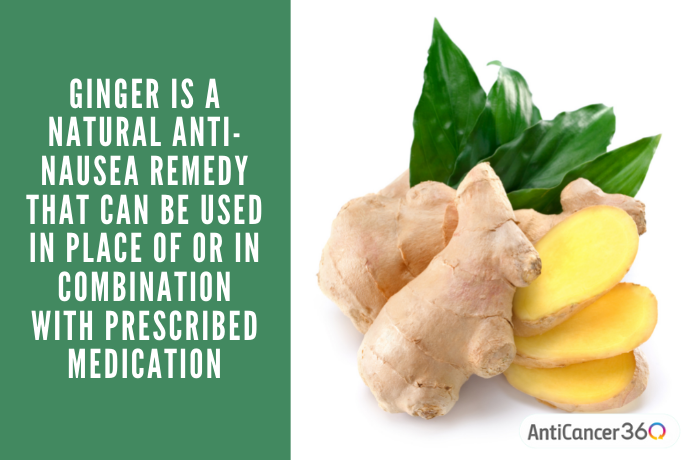
But, you may be looking for a non-drug option to help reduce CINV. Ginger is a natural anti-nausea remedy that can be used in place of or in combination with prescribed medication.
Keep reading for more information about ginger, how to take it, and how it may help in your fight against cancer.
What is Ginger, and how does it work for nausea?
Ginger is derived from the root of the ginger plant. Also known as Zingiber officinale and Shen Jiang, ginger has been used as a medicine and a flavor-enhancing spice in foods and drinks for thousands of years.
Ginger root contains the active compounds shogaol and gingerol, which may help prevent or ease nausea and vomiting. These compounds can help calm the stomach and intestines and increase the flow of saliva and gastric juices, as necessary for proper digestion.
Frequently Asked Questions About Ginger, Cancer, and Nausea
Does ginger really work for chemotherapy-associated nausea or vomiting?
The short answer is yes… but as with any treatment, individual results may vary.
Many studies have shown that ginger can help to reduce the severity and/or likelihood of nausea and vomiting from chemotherapy. Other studies have had mixed results, suggesting that ginger’s effects might vary, depending on the dose, if you take anti-nausea drugs, and your specific type of chemotherapy regimen.
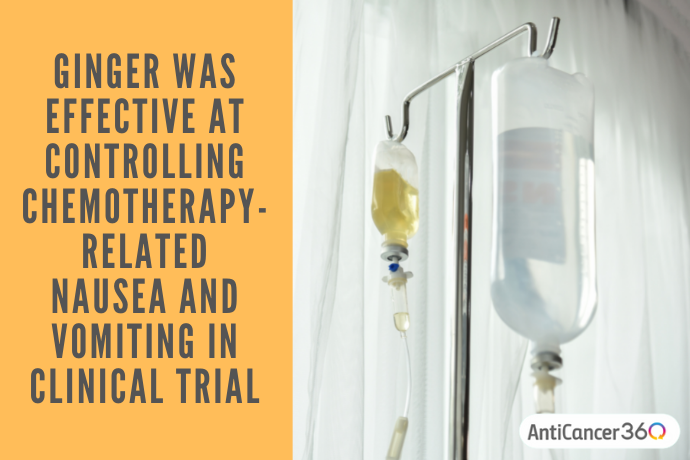
A comprehensive analysis of ten randomized clinical trials found that in doses ranging from 0.5 to 2 grams per day, ginger was effective at controlling chemotherapy-related nausea and vomiting. Further, ginger was shown to be particularly effective in reducing the chance of acute vomiting (defined as vomiting that occurs within 24 hours of receiving chemotherapy) [2].
Another study found that ginger, up to 1 gram daily for at least three days, reduces the likelihood of acute vomiting after chemotherapy by 60% [3].
What is the best way to take ginger: fresh ginger, a ginger supplement, or ginger ale?
It’s best to take “real” ginger: fresh, raw ginger from the grocery store’s produce aisle. Or, you can take a convenient ginger supplement, like ginger capsules, tablets, or powder.
According to most experts, ginger root in its raw, natural state is the preferred form of ginger. Aim to consume up to 4 grams (about one tablespoon) of raw ginger in a day [4].
To prepare fresh ginger, wash thoroughly then remove the skin with a vegetable peeler or knife. Then, chop or grate into the desired size and add to soup, stir fry, or other healthy recipes.
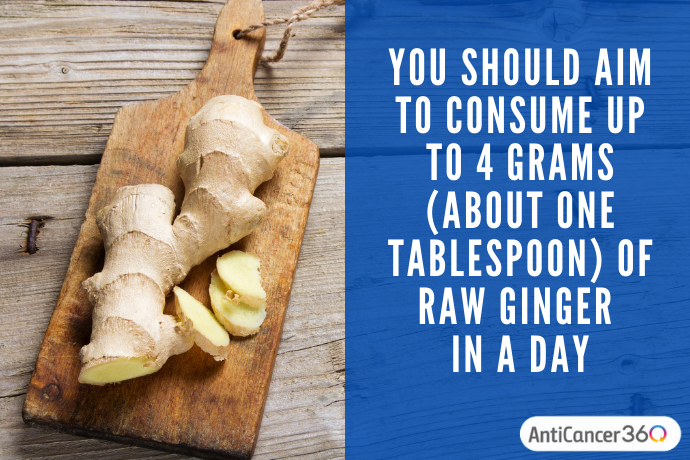
You can also opt for homemade ginger tea by simmering a one-inch piece of fresh ginger root in 4 cups of water, then steep and enjoy [5].
Ginger chews or candy are also available. Just be sure to read the ingredients and choose a brand made with real ginger.
Skip the ginger ale. Most ginger ales do not contain real ginger, and are likely loaded with sugar, artificial flavoring, or high-fructose corn syrup…and it’s best to avoid sugars when you’re fighting cancer. Watch for sweetener ingredients in ginger chews or candy as well.
Does ginger have anticancer effects?
Possibly, yes. Besides ginger’s anti-nausea benefit, numerous scientific studies have shown additional anticancer mechanisms of this ancient spice. These include [6],[7]:
- Anti-inflammatory effects, against cancer-related inflammation
- Anti-proliferative effects, via disrupting cancer cell signaling pathways
- Protective antioxidant effects
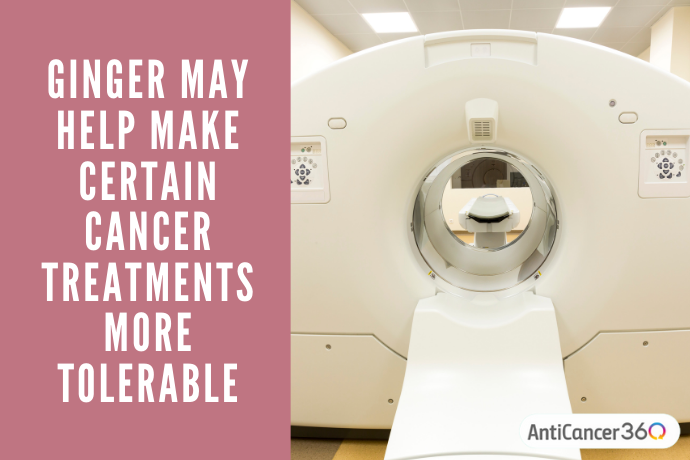
Other studies suggest that this spice may help make certain cancer treatments more tolerable. For example, a 2017 study looked at the effects of giving ginger extract to rats for 10 consecutive days before exposing them to radiation. The results showed that the rats who received ginger were partially or entirely protected against radiation-induced kidney damage [8].
What dose of ginger should I take, and when should I take it? Before or after receiving chemotherapy?
Based on clinical study data, the strategic timing of ginger is important. Consider starting ginger on either the day of or 3 days before you receive chemotherapy. Continue taking it for the next 3 to 5 days in a row [9].
The typical dosage of powdered ginger or liquid extract of ginger root is 0.5 to 2 grams, divided into two to four doses throughout the day [10],[11].
Ginger isn’t known to have any interactions with anti-nausea drugs. So, you should be able to safely take ginger in addition to any medications your oncologist prescribed to prevent or treat nausea or vomiting. (But, first, be sure to read the precautions just below.)
Are there any risks or side effects of ginger?
Overall, ginger is safe and well-tolerated. Note that ginger capsules may be a better option than ginger powder because the capsule form is less likely to cause side effects. Possible side effects of ginger, especially if you take doses higher than 5 grams per day, include [12]:
- Heartburn or belching
- Throat irritation
- Abdominal pain
- Diarrhea

Ginger may not be safe for everyone. Consult a health practitioner before taking ginger if you have any of the following factors or conditions [13]:
- If you have gallbladder problems or gallstones.
- If you are pregnant or nursing.
- If you have a bleeding disorder or take blood-thinner medication, such as warfarin, Pradaxa, or Xarelto.
Due to ginger’s possible blood-thinning effects, stop taking this supplement two weeks before and after surgery.
Bottom Line
Ginger is a very safe and effective natural remedy for nausea and vomiting in most cases. It has helped many people reduce or avoid this common side effect of cancer treatment.
If you’ve had a bad experience with sickness from your cancer treatment, or if you’re looking for natural ways to prevent this dreaded side effect, try adding ginger. If you have questions about whether ginger is safe for you, consult your healthcare provider or click the link below if you’re interested in guidance from our team.
If you’d like to know more about the AntiCancer360 approach, please watch our free online webinar. At the end of the video, you can schedule a free call with a member of our team. On the call, we can discuss your unique case in more detail and answer any questions.
Cancer is a challenging obstacle to overcome, and there are many different conventional, natural, and integrative treatment approaches to consider. The most important thing to know is that you are not alone, and professional help is available to assist you in finding the approach that’s right for you.
Dr. Patricia Weiser is one of AntiCancer360’s consultant pharmacists, science advisors, and medical writers. Her expertise helps us create safe herbal and supplement combinations and avoid potential drug interactions.
Patricia is a graduate of the University of Pittsburgh and a licensed pharmacist. She has clinical experience in both community and hospital pharmacy. She is passionate about integrative and preventative care and strives to empower her patients to take an active role in their health.

